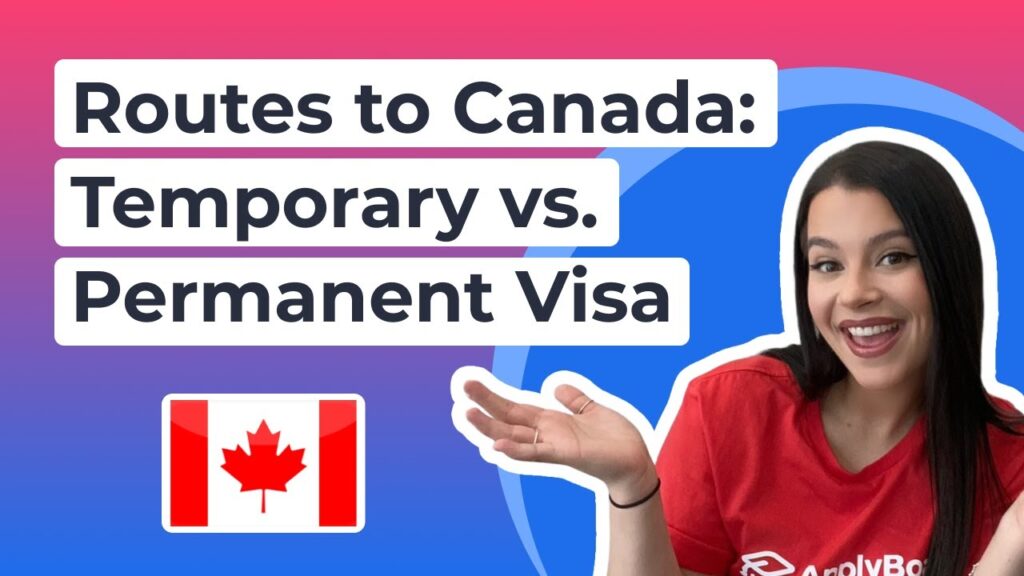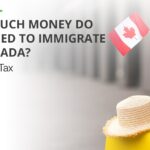Canada is a popular destination for people from around the world, offering a high standard of living, robust job opportunities, and excellent education. Depending on your reasons for visiting or moving to Canada, the country provides a range of visa types that cater to tourists, students, workers, and those seeking permanent residency. CANADA VISA TYPES Understanding the different types of Canadian visas is crucial for ensuring you apply for the right one that aligns with your goals. In this article, we will explore the main visa categories offered by Canada, detailing their purposes and eligibility requirements.
Visitor Visa (Temporary Resident Visa)
The Canadian visitor visa, also known as the Temporary Resident Visa (TRV), is designed for individuals who wish to enter Canada for short stays, typically for tourism, family visits, or business. Visitors can remain in Canada for up to six months, but they must demonstrate a clear intention to leave Canada at the end of their authorized stay.
There are two types of visitor visas: single-entry and multiple-entry. The single-entry visa allows visitors to enter Canada once, while the multiple-entry visa permits repeated entries during the visa’s validity period, which can last up to 10 years. Applicants for a visitor visa must provide evidence of sufficient financial resources to cover their expenses during their stay, proof of their ties to their home country (such as employment or family), and meet health and security requirements.
Additionally, citizens of visa-exempt countries, such as those from Europe or the United States, do not need a traditional visitor visa but must obtain an Electronic Travel Authorization (eTA) to enter Canada by air. The eTA is electronically linked to the traveler’s passport and remains valid for five years or until the passport expires.
Work Permit
Canada offers numerous work permit options for foreign nationals who want to work in the country temporarily. The two main types of work permits are employer-specific work permits and open work permits. Each has its unique requirements and application processes.
Employer-specific work permits are tied to a specific job with a designated employer. To apply, the employer may need to obtain a Labour Market Impact Assessment (LMIA), which proves that hiring a foreign worker will not negatively impact Canadian job opportunities. The foreign worker must then apply for the permit based on this job offer. In contrast, open work permits allow individuals to work for any employer in Canada, with some restrictions. Open work permits are commonly issued to spouses or common-law partners of skilled workers and international students. They are also available through certain programs, such as the International Experience Canada (IEC), which targets youth from participating countries. To qualify for a work permit, applicants need to demonstrate that they meet job requirements, have sufficient funds to support themselves during their stay, and satisfy health and security checks. Work permits are temporary, but some workers may qualify for permanent residency through programs like the Canadian Experience Class (CEC) after gaining Canadian work experience.
Study Permit
Canada is home to many top-ranked educational institutions, making it a popular destination for international students. A study permit is required for foreign nationals who intend to study at a Canadian university, college, or other post-secondary institution for more than six months. To apply for a study permit, students must first receive an acceptance letter from a recognized Canadian institution. In addition to the acceptance letter, applicants must show proof of financial support to cover their tuition fees, living expenses, and return transportation costs. Students must also meet health and security requirements, which may include medical exams and police certificates. CANADA VISA REQUIREMENTS Study permits come with several conditions, including maintaining full-time student status and making satisfactory academic progress. While the permit allows students to live and study in Canada, a separate visa, such as a visitor visa or eTA, may be required for travel to Canada.
International students may also be eligible to work while studying under certain conditions, either on-campus or off-campus. After graduation, they can apply for a Post-Graduation Work Permit (PGWP), which allows them to work in Canada for up to three years, depending on the length of their study program. The PGWP also serves as a pathway to permanent residency for many graduates.
Permanent Residency (Immigration) Programs
Canada has a variety of immigration programs designed to attract skilled workers, entrepreneurs, and family members of Canadian citizens or permanent residents. The most well-known pathway to permanent residency is through the Express Entry system, which manages applications for three major immigration programs: the Federal Skilled Worker Program (FSWP), the Federal Skilled Trades Program (FSTP), and the Canadian Experience Class (CEC).
Applicants under Express Entry are scored based on factors such as age, education, work experience, language proficiency, and adaptability. Candidates with the highest scores receive an Invitation to Apply (ITA) for permanent residency.
In addition to Express Entry, Canada offers the Provincial Nominee Program (PNP), which allows provinces and territories to nominate individuals who meet regional labor market needs. Family sponsorship is another key immigration pathway, enabling Canadian citizens and permanent residents to sponsor close relatives, such as spouses, children, and parents, to immigrate to Canada.
Business and Investor Visas
Canada also offers visa options for individuals interested in investing in or starting businesses in the country. The Start-Up Visa Program is aimed at entrepreneurs with innovative business ideas who are supported by a designated organization, such as a venture capital firm or business incubator. Other business immigration programs, like the Self-Employed Persons Program, target individuals with relevant experience in cultural activities, athletics, or farm management who intend to contribute to Canada’s economy. Investors may also explore various provincial investor programs under the Provincial Nominee Program (PNP), which encourage foreign investment in regional economies.
To qualify for a business or investor visa, applicants must meet specific criteria related to their business experience, financial resources, and ability to contribute to Canada’s economic growth. These visas often lead to permanent residency, making them an attractive option for entrepreneurs and investors looking to establish themselves in Canada.


